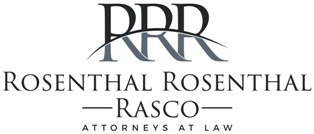Florida Condominium Association Website Law: Everything You Need to Know
Condominium Website Rules
The laws regulating websites for Florida Condominium Associations were amended in 2018. It is important for Condominiums Associations and condominium unit owners to fully understand these amendments and to take action to ensure compliance with these new rules.
Florida Condo Website Requirements
By January 1, 2019, a Condominium Association in Florida with 150 or more units (not including timeshare units) must have an independent website or web-portal owned and operated solely by the Association or operated by a third party provider on behalf of the Association.
Ownership of Condominium Website
Association websites may be owned by the Association or by the Association’s management company. Associations with management companies should review their management agreement to determine if the website is owned by the Association or by the management company.
If an Association’s website is owned by the management company, the Association should also review the termination provisions of the management contract to see how the website will be handled upon the termination of the management company’s services.

Condominium Web Site Content – Posting Information and Documents
Section 718.111 of Florida’s Condominium Act regulates and outlines documents that must be posted on the Associations’ website.
Associations Should Post the Following Documents on Their Website:
-
- The recorded declaration of each condominium operated by the Association
- Recorded bylaws of the Association
- The articles of incorporation of the Association, or other documents creating the Association and each amendment to these, all in the form of copies of documents filed with the Florida Division of Condominiums, Timeshares and Mobile Homes.
- The rules of the Association
- Any management agreement, lease, or other contracts to which the Association is a party or the unit owners have an obligation or a responsibility
- Summaries of bids for materials, equipment or services must be maintained on the website for a year
- The annual budget required by s. 718.112(2)(f) and any proposed budget to be considered at the annual meeting
- The financial report required by subsection (13) and any proposed financial report to be considered at a meeting
- The certification of each director of the Association
- All contracts or transactions between the Association and any director, officer, corporation, firm, or association that is not an affiliated condominium association or any other entity in which an Association director is also a director or officer and financially interested
- Any contract or document regarding a conflict of interest or possible conflict of interest
- The notice of any unit owner meeting and the agenda for the meeting
- Notice of any board meeting, the agenda, and any other document required for the meeting
Posting notices on the Association website does not eliminate the obligation of the Association to post notices at the condominium property or to deliver the notices to members via post or email, as required by the Condominium Act.
Condominium Web Site Accessibility
The Association website should be accessible to the general public via the World Wide Web, but should also contain a password-protected section for unit owners and Association employees. Username and password should be provided to all condominium unit owners upon request. This section contains protected notices and records. Documents accessible in the public section must be redacted to protect sensitive information.
Documents Privately Accessible to Unit Owners:
-
- Governing documents (declaration, articles and bylaws, CC&Rs, etc.)
- A list of executory agreements and documents
- Budgets, current and pending
- Board of directors information, contracts between directors and the Association
- Board meeting notices and supporting documents
Publicly Available Documents
-
- Meeting notices for annual meetings and any owners meetings, posted no less than 14 days before the meeting
- Association’s estoppel designee
Legal Services for Condominium Associations
It is vital for all Condominium Associations and condominium unit owners to recognize and understand the website rules and posting requirements.
This is just a brief overview of amendments to the State of Florida’s Condominium Act, and we recommend that all Florida Condominium Associations consult with an experienced and qualified condominium association attorney in Aventura who will ensure statutory compliance with the Condominium Act.
Our law firm, Rosenthal Rosenthal Rasco LLC, can provide Florida Condominium Associations with experienced legal services. Contact us today and learn more about the efficient and personal representation we provide to our clients.
Author: Heather A. Scott

